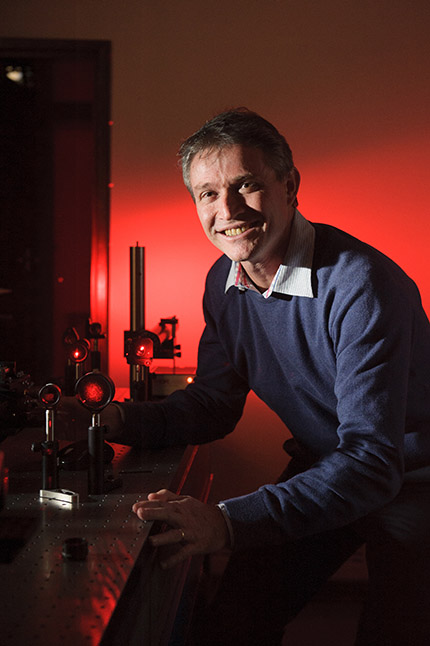Wits physicist is joint winner of The World Academy of Sciences award
- Wits University
Professor Andrew Forbes shares the award for physics with Professor Jueinai Kwo of Taiwan.
Wits physicist Professor Andrew Forbes jointly won the award in the Physics category of the 2024 The World Academy of Sciences (TWAS) awards that were announced late in November.
 Forbes was recognised for his seminal contributions in creating new forms of classical and quantum states of structured light, thereby advancing photonic-based applications and fundamental sciences.
Forbes was recognised for his seminal contributions in creating new forms of classical and quantum states of structured light, thereby advancing photonic-based applications and fundamental sciences.
Kwo won the award for her outstanding work in condensed matter research, with the invention of novel thin films for magnetism, superconductivity, nano-electronics and spintronics; and for her pioneering work in the field of artificial magnetic superlattices.
TWAS Awards are awarded every two years in nine fields: Agricultural Sciences, Biology, Chemistry, Earth, Astronomy and Space Sciences, Engineering Sciences, Mathematics, Medical Sciences, Physics, and Social Sciences. During the latest round, there were 13 prize winners: one from Brazil, four from China and three from Taiwan, China; one from India; one from Kenya; one from Malaysia; one from Türkiye and one from South Africa. The award winners include four women.
The TWAS Awards (previosuly called 'TWAS Prizes') are awarded to individual scientists from developing countries in recognition of an outstanding contribution to scientific knowledge in nine fields of sciences and/or to the application of science and technology to sustainable development.
Candidates for a TWAS Award must be scientists who have been working and living in a developing country for at least ten years immediately prior to their nomination. They must meet also meet at least one of the following qualifications: Scientific research achievement of outstanding significance for the development of scientific thought, and/or make an outstanding contribution to the application of science and technology to sustainable development.
“I often get asked by people why I work in South Africa, and I always explain that it is because I believe that I can do good science anywhere, but here in South Africa I can do more than just good science, I can make a telling difference,” says Forbes.
This contribution may be through advocacy to the government to create opportunities for the next generation of scientists, or by helping to educate our way out of our social crisis.
“Talent is spread evenly across the planet, but opportunity is not. I chose to be an opportunity creator for others, while doing what I love to do, science at the highest level I can. TWAS recognises people who select to do excellent science in places where they are needed the most, and although no awards are needed for me to do the right thing, it is most welcome when it is acknowldged in this way, for which I am truly grateful.”
Each TWAS Award carries a cash award of USD10,000. The winners will lecture about their research at next General Conference to be tentatively held in 2024, when they will also receive a plaque.

